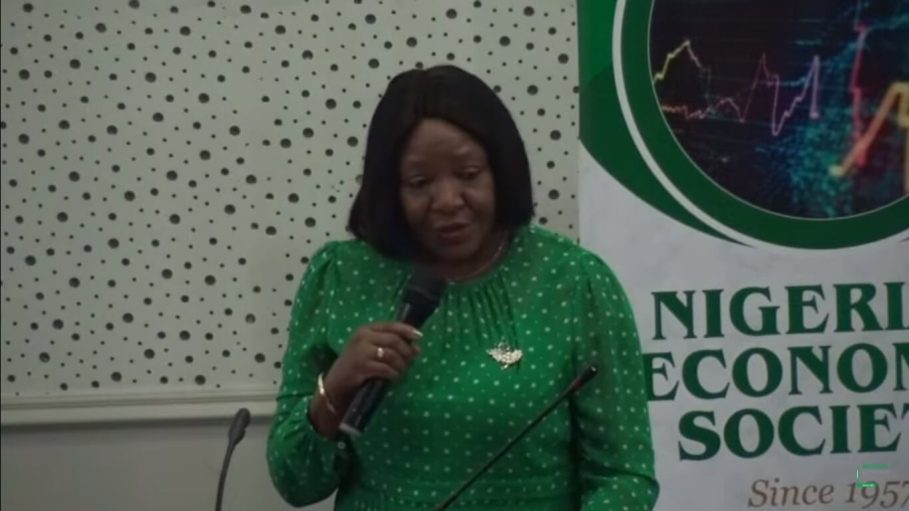Central Bank of Nigeria (CBN) Governor, Olayemi Cardoso, has advanced reasons the monetary authority decided to adopt the policy of allowing market forces to determine rates in the foreign exchange market in the country.
Cardoso said the apex bank has managed a fixed rate for exchange between the naira and other foreign currencies such as the dollar, Pounds, and Euro for many years and gotten to a point where it was no longer sustainable.
Join our WhatsApp ChannelThe apex bank boss made this known at a public lecture organised by the Nigerian Economic Society (NES) at the University of Ibadan, Nigeria on Thursday, monitored virtually by Prime Business Africa.
The theme of the public lecture is “Recent Development in the Nigerian Foreign Exchange Market: Issues, Options and Way Forward.”
The CBN had in June 2023 embarked on foreign exchange reforms which involved the unification of the exchange rate windows and floatation of the naira in the forex market.
The reforms saw the value of the naira fall from about N430/$ to over N700/$ and subsequently plummeted to over N900/$. On Wednesday, February 21, 2024, the naira exchanged N1,540 in the official market and N1,830 per dollar in the parallel market. The high exchange rate has continued to impact on the economy in terms of surging inflation as Nigeria operates an import-dependent economy.
Mr Cardoso, who was represented by Dr Usman Okpanachi of the CBN Department of Monetary Policy, said that excess demand for forex has been a “legendary problem in Nigeria.” He added that the activities of speculators contribute significantly to pressure on forex in the country.
He said “Over the years, the bank has implemented various strategies and innovations aimed at addressing this problem,” adding that those strategies had provided some kinds of relief in the forex market and the economy.
However, according to him, the sources of forex to the reserves which are oil receipts and foreign investments have become unpredictable leaving the CBN in a precarious situation whenever the foreign reserves drop.
He added that the depleting foreign reserves made it imperative for the CBN to allow forces of demand and supply to determine the exchange rate as it was no longer sustainable to continue fixing rates because it does not produce dollars to meet the persistent demand.
He maintained that the recent policies of the apex bank are to address various monetary issues in the economy.
“The approach that the current management of the CBN adopted is a market-based approach. What that means is that the bank wants to allow the market forces to play a greater role in the determination of the value of the naira. This was ushered in by the unification of the exchange rate windows that happened in June 2023.”
He further explained that the decision to adopt a market-based approach was informed by the fact that forces of demand and supply will always play a role, “and that we cannot have lasting stability by artificially holding down the exchange rate. That has been tried in the past and it simply didn’t work,” he argued.
He also pointed out that when the source of supply of forex to the reserves cannot be guaranteed, “it becomes difficult to fix or hold the exchange rate when you can no longer defend it and therefore, becomes an exercise in futility.”
Speaking further on the policies adopted so far in managing monetary activities in the economy, he emphasized that they are targeted at both demand and supply sides, adding that some are aimed at boosting liquidity in the forex market and tightening money supply to deal with inflation.
He mentioned some of the policies of the CBN including enforcement of net-open position limits of commercial banks in foreign exchange transactions to boost liquidity in the forex market, and new guidelines for International Monetary Transfer Operators (IMTOs) among others.
Cardoso maintained that the policies are to ensure transparency in the forex market which is vital for building confidence in the system.
He claimed that with the policies on the ground, the market would become more liquid, reduce rent-seeking, and improve transparency.
While noting that economic policies take time to make a positive impact on the economy, the CBN boss called on Nigerians to be patient, expressing hope that the naira will not continue to be where it is now.
Speaking earlier, the Director General of Nigeria Institute of Economic Research (NIER), Prof. Antonia Taiye Simbine, who was the chairperson of the event, said the two landmark policies of the Tinubu administration – foreign exchange reforms and fuel subsidy removal – have no doubt “unleashed dramatic effects on the country.”

Prof. Simbine noted that the economy has never been immune from external shocks induced by geopolitical tensions or conflicts, especially in the Middle East, or the fall of crude oil prices in the international market. She said the evolving effects have a significant impact on various sectors of the Nigerian economy.
The NIER DG observed that amidst criticisms trailing government policies due to the outcome, what is needed now is the way forward. She highlighted some measures on the table that can salvage the situation such as ramping up productivity, and roll out of high-value products for exports to generate and guarantee organic and sustainable flow of liquidity into the forex market.
She also stressed the need for deepening conversations around creating policies and strategies that can help achieve the goal in a relatively short period and stabilize the economy.
READ ALSO:
- Economic Crisis: Nigeria Has No Option Than To Produce For Food Security, Forex Stability – Utomi
- Naira Trades For N1,900/$1 Despite Rising Demand: CBN, EFCC Collaborate To Tackle Currency Speculators
- CBN Raises Customs Duty Rates By 59.1% In 2 Months Amid Naira Depreciation
She also underscored the dire need to diversify the economy as a way of expanding sources of forex inflow.
Speaking on why the reforms of the current administration seem not to have achieved the desired results, Simbine said: “It is a no-brainer that reforms are complicated by systemic imperfection and structural rigidity which Nigeria exemplifies in so many ways. It is intriguing for instance that the higher the FAAC has to disburse, sparked by the removal of fuel subsidies, this tends to escalate dollar demand which induces undesirable changes in the exchange rates, suggesting very disturbing countervailing activities within the intergovernmental structure.”
She also expressed concern that the much acclaimed $26 billion yearly diaspora remittance inflow “hardly triggers positive shifts in the exchange rate, indicting banks and IMTOs of complicity and currency manipulations in the transaction process.”
She highlighted the need for accountability and transparency in the management of public resources at this critical time to help build confidence and confer credibility on government actions to win the support of the masses who have to make sacrifices to engineer a better future.
She concluded by advising on minimizing inevitable hardships, containing rising social discontent, and managing resources within what is most needed.
In his welcome address, the President of the Nigerian Economic Society, Professor Adeola Adenikinju, said the choice of the theme of the event was due to the current foreign exchange crisis in the country. He added that the public lecture was to add the voice of NES in proffering solutions to the ongoing economic challenges in the country.
Victor Ezeja is a passionate journalist with seven years of experience writing on economy, politics and energy. He holds a Master's degree in Mass Communication.


















Follow Us